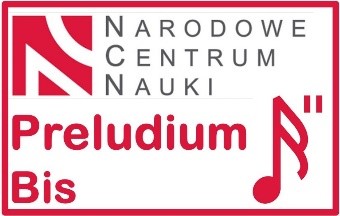The National Science Centre has accepted funding for the PRELUDIUM BIS project at IPPT PAN. Prof. Stanisław Stupkiewicz, the project leader and head of research group Materials Modeling, will hand in the project realization to a doctoral student as part of their doctoral dissertation.

PRELUDIUM BIS
The objective of the call is to support PhD student education in doctoral schools and fund research projects carried out by PhD students as part of their doctoral dissertations.
Project : ADHESION, FRICTION AND CONTACT AREA IN SOFT ELASTIC AND VISCOELASTIC CONTACTS AT FINITE DEFORMATION
coordinator: prof. Stanisław Stupkiewicz
Soft contacts attract significant research interest since they are common in various areas of engineering, including bioengineering and related applications. By soft contacts we mean here the situations in which one or both contacting bodies are highly compliant, which is the case of elastomeric materials, hydrogels, as well as various biomaterials, e.g. human skin and soft tissues. In terms of mechanical behaviour, such materials are usually treated as elastic or viscoelastic. Moreover, they usually admit relatively large deformations, hence an adequate mathematical description should include the related nonlinearities. Such large deformations are induced, for instance, when a rubber-like material (elastomer) is brought to contact with a glass plate. In the absence of lubricant, i.e. in dry contact conditions, high friction forces develop when a tangential load is applied. Moreover, the materials may stick one to the other so that tensile force must be applied to separate the contact pair. This phenomenon, called adhesion, is particularly important at small scales.
The project is concerned with modelling of soft contacts with coupled adhesion and friction. The focus is on the finite-deformation effects. It is only very recently that the crucial role of the finite-deformation effects has been demonstrated in soft contacts subjected to shear loading, in particular, providing a direct explanation of experimentally observed reduction of the area of contact under increasing shear loading. Considering these new findings, it is expected that consideration of the finite-deformation effects in the mechanics of soft contacts opens a possibility to reinterpret numerous experimental results that have so far been analysed using small-strain models neglected the nonlinearities associated with finite deformations.
The goal of the project is thus to develop a family of models of adhesive contact with friction with full account of the finite-deformation effects. The focus will be on elastomer/glass contact as a model contact pair that is extensively studied in experiments. As an important distinctive feature of the planned research, rate-dependent phenomena will be considered both in the bulk material (viscoelasticity) and in the contact interface. The models developed within the project will be applied to study a number of open problems, for instance, evolution of the contact area during incipient tangential loading and the effect of the rate of shearing on the evolution of contact area. It is believed that the project results will contribute to improved understanding of adhesion and friction in soft contacts and may constitute a contribution to revealing the origin of sliding friction in soft contacts.

Competition for doctoral candidates
PRELUDIUM BIS is an elite funding programme outside doctoral schools funding limits. IPPT PAN has announced recruitment for submitting research proposals. The competition is open to doctoral candidates who are planning to begin their doctoral school study in the academic year of 2021/2022.
More: pdf















